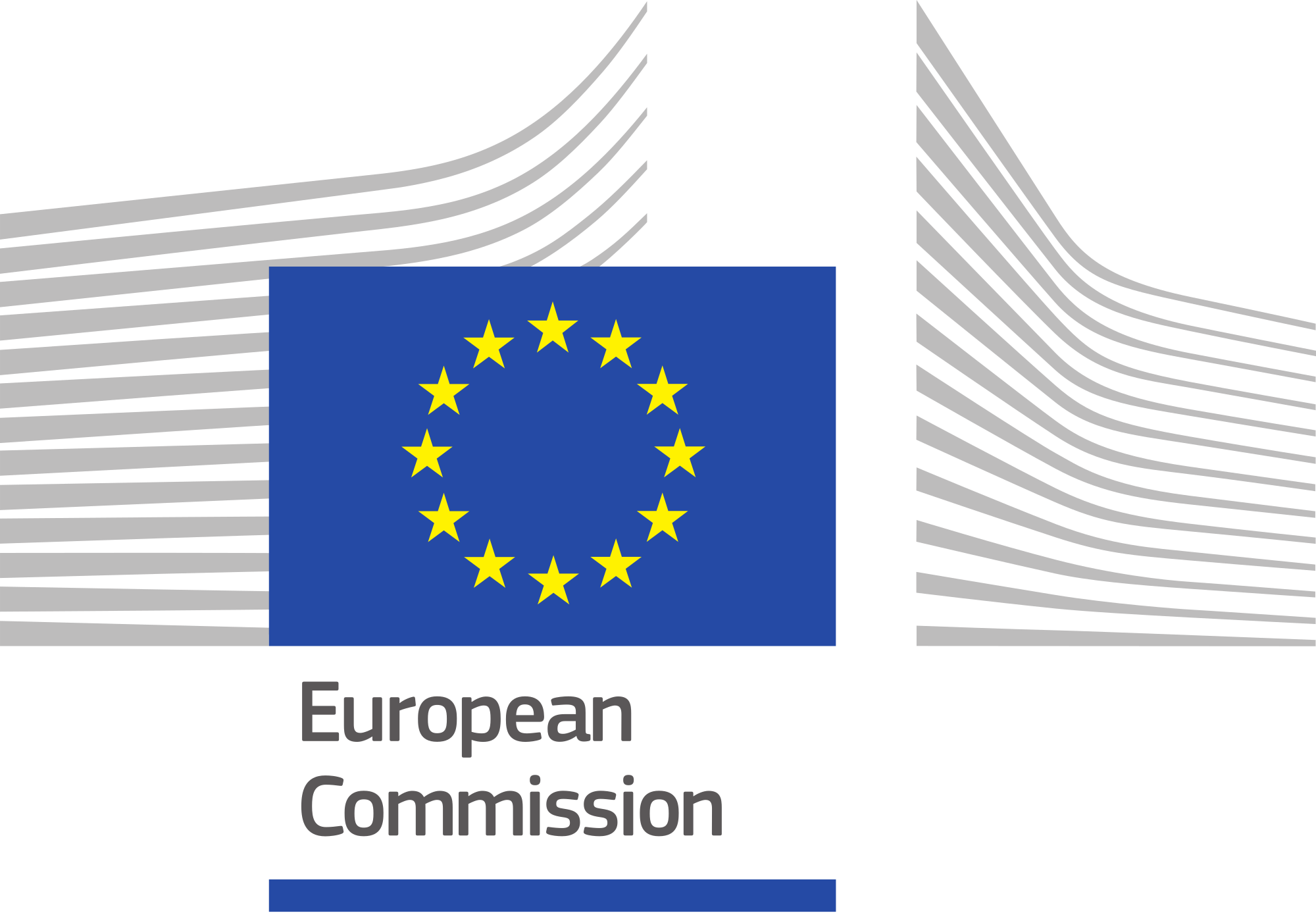Sicco Brandsma is an assistant professor at the Department of Environment & Health, Vrije Universiteit (VU) Amsterdam. His research focuses on the development and implementation of novel analytical techniques to study brominated and phosphorus flame retardants, perfluorinated compounds, and chlorinated paraffins indoors and outdoors. He was a visiting scientist at ENTOX/QAEHS in Brisbane, Australia, NIES in Tsukuba, Japan and CCIW, Environment Canada, Burlington, Canada, and involved in several national and international/European (FIRE, ENFIRO, INTERFLAME, INTERWASTE) research projects. In 2017 he received a personal ‘Veni’-grant from the Dutch Research Council (NWO) for research on the fate of toxic additives in recycled plastics. Within this NWO-project he will use high-resolution ambient mass spectrometry to develop fast screening methods to carry out suspect and non-target chemical screening to investigate additives in “recycled” plastics, setup leaching experiments to investigate the realistic exposure, investigate the toxicity by using the EDA approach. He has authored and co-authored 32 publications in scientific peer-reviewed journals.
Participating Organisations
Beneficiaries
Vrije Universiteit (VU)
Organisation Type: Academic (Host)
The mission of the Dept. of Environment & Health of the Vrije Universiteit (VU) is to achieve a better understanding of the impact of environmental contaminants on human health and the environment by multidisciplinary academic research and education. The unique combination of chemists, toxicologists and epidemiologists enables a holistic approach of environmental and human health topics. Our expertise and research output make an important contribution to the knowledge needed for informed environmental governance of the most pressing environmental pollution issues. The Department is based in the modern Oǀ2 laboratory building at the Zuid-as of Amsterdam. Research facilities are shared within the interfaculty institute AIMMS (www.aimms.vu.nl).
Find out more about VU at science.vu.nl
Sicco Brandsma – project director
Jacob de Boer
Jacob de Boer is Professor of Environmental Chemistry and Toxicology at the Department of Environment & Health at the Faculty of Sciences, Vrije Universiteit (VU) Amsterdam, The Netherlands. He obtained a PhD in analytical chemistry at the VU in 1995. Prof. De Boer has worked for many years on the environmental contamination and analysis of polychlorinated biphenyls, chlorinated paraffins and other flame retardants, as well as perfluorinated compounds, PAHs and other contaminants. He is an advisor for the UN Environment Program (UNEP), a member of the QUASIMEME Scientific Assessment Group, and of the European Scientific Advisory Panel of the CEFIC Long Range Initiative. He has published 230 peer reviewed, among one paper in Nature, and one in Science, two books and 21 book chapters. His H-index is 57. In 2015 he was honoured as one of the most cited scientists in his field (Top 1%) according to Thomson & Reuter. He is editor-in-chief of Chemosphere (Impact factor 7.1) and member of the editorial board of the Handbook of Environmental Chemistry.
Louise van Mourik
Louise van Mourik completed her PhD in 2019 on chlorinated paraffins (CPs), in particular advancing analytical capabilities for CPs allowing the first evaluation of their levels in Australia. This was a joint collaboration between the University of Queensland (QAEHS) and Vrije Universiteit Amsterdam (dept. of Environment and Health) for which she received two grants (International Postgraduate Research Scholarship and the University of Queensland Centennial Scholarship and Research Training Fee). She is currently working as a post doc researcher at E&H on several projects such as developing and/or optimizing analytical methods for complex substances to assess their levels as well as fate and hazard potential. In the last five years she has published seven papers, of which six on CPs, and eight co-authored consultancy reports.
Jeroen Kool
Dr. Jeroen Kool (associate professor at the Vrije Universiteit; VU) is an analytical chemist with research interests in high resolution screening of biologically active mixtures. His research achievements allow full compatibility of analytical separations with biological assays (including cellular) and parallel MS detection for investigation of bioactive mixtures (natural product extracts, metabolic mixtures, venoms, environmental mixtures) using miniaturized setups and nanospotting technologies. These techniques combine chromatography, mass spectrometry and bioassays in one analytical platform are now known as nanofractionation analytics. Dr. Kool developed hyphenated analytics for both LC and GC separations to bioassays for identification of biologically active toxicants in natural extracts, food and the environment. He also developed analytical methodologies for bioactivity profiling of metabolic mixtures from drugs and lead compounds targeting GPCRs, nuclear receptors, protein kinases and ion channels. Currently, he works on post-column microfluidics and nanospotting analytics for analysis of bioactive mixtures and on developing analytics for the characterization of venom induced pathologies in order to better understand snakebite envenoming.
Pim Leonards
Prof. Leonards is a full professor at the Dept. Environment & Health (VUA). Prof. Leonards holds an MSc in Biology and a PhD in Analytical environmental chemistry. He is an expert in mass spectrometric analysis methods for contaminants. He is also developing methods in the field of metabolomics. He has led a number of large European research projects such as DENAMIC, ENFIRO and FIRE. He has regular contact with the CP industry (Eurochlor). He is currently supervising 3 PhD students and has supervised 10 MSc students.
Timo Hamers
Dr. Timo Hamers is an associate professor in environmental toxicology in the Department of E&H (VUA). He has more than 20 years of experience in the application, development, and optimisation of small-scale in vitro bioassays to determine toxicity profiles of sets of individual compounds and complex environmental mixtures of pollutants. Within several international projects, he played an active role in the hazard assessment of POPs, pesticides, flame retardants, and other house-dust pollutants with a special focus on endocrine disruption and neurotoxicity. In addition to his research activities, he is a lecturer in toxicology in BSc and MSc courses. He has supervised three PhD students, five postdocs, and more than 40 MSc and BSc internships. He has published more than 70 peer-reviewed articles.
Marja Lamoree
Prof.dr. Marja Lamoree (F): is a professor of Analytical Chemistry for Environment & Health. Her expertise lies in the combination of up-to-date analytical-chemical and biological-based techniques and their application in an iterative mode in order to identify novel and “unknown” substances, to contribute to the evaluation of their biological relevance and estimation of their total toxic potency. In addition, she works on the development of targeted analytical methods as well as suspect and non-target screening approaches for the determination of emerging pollutants at very low concentrations in environmental as well as human matrices such as breast milk and cord blood for human biomonitoring in cohort studies. She coordinates research projects on emerging pollutants for the Dutch Science Foundation, participated in the EU-project OBELIX and is currently involved in the HBM4EU project. In addition, she worked on the identification of microplastics in placenta and amniotic fluid samples funded by The Netherlands Organisation for Health Research and Development. She is also embedded in the Microplastics and Human Health Consortium (MOMENTUM).
Chiron AS
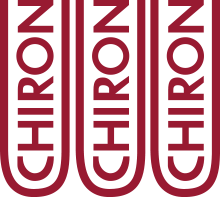
Organisation Type: Non-academic / Industrial partner
Chiron AS provides the scientific community worldwide with sophisticated solutions for difficult chemical analysis. Since 1983 Chiron has supplied reference standards, fine chemicals and reagents for toxicological, pharmaceutical, environmental, food safety, petroleum and geochemical analysis. Chiron’s offering consists of more than 15,000 unique products, and if you can’t find what you are looking for, Chiron also provide a custom synthesis service for microgram to kilogram quantities. Chiron is headquartered in Trondheim, Norway, has a UK subsidiary, and operates though a competent global network of distributors. Many years of investment, the enthusiasm and pioneering team spirit of its staff, and a close cooperation with academic institutions and customers worldwide has bought Chiron to the forefront of analytical chemistry.
Find out more about Chiron at www.chiron.no/en
Download our company overview
Jon Eigill Johansen
Jon has a background in in organic chemistry: synthesis, isolation, and structural elucidation. He completed his masters (1972) and PhD (1976) in Carotenoid Chemistry with professor Liaaen-Jensen at the Norwegian Institute of Technology in Trondheim, before attending the University of California, Berkeley for a two year postdoc with professor Henry Rapoport on indole alkaloid synthesis. After he made a second postdoc at the ETH, Zürich in prebiotic Chemistry with professor Albert Eschenmoser. After three years working on homogeneous catalysis at SINTEF in Trondheim he established his first company, Chiron Laboratories, in 1983. Jon has extensive experience in project planning and development and have led his companies and numerous international projects to successful results. The current company Chiron AS is involved in the production of certified reference materials (CRMs) for petroleum, environmental, food safety, and toxicology analysis, as well as the scale up of key compounds.
Huiling Liu
Huiling has a background in organic chemistry and synthesis spanning 30 years. She has a master’s degree in chemical engineering, with specialism in organic chemistry and the synthesis of pesticides. She started her career as lecturer at Shenyang Pharmaceutical University in China, teaching organic chemistry and experimental organic chemistry, before she moved to the Tsukuba University in Japan for a research assignment in metallic organic chemistry. Huiling completed her PhD in organic chemistry at the Norwegian University of Science and Technology (NTNU) in 2001, focusing on enzymatic catalysis (biocatalysis) in organic synthesis and the synthesis of enantiomerically pure pharmaceutical products. Huiling joined Chiron in 2001 after her PhD, as researcher to develop reference materials for environmental, food safety, petroleum and pharmaceuticals/drugs analysis. She now works as R&D manager and has been leading many research projects including those focussing on POP’s, PAH and petroleum standards as well as pharmaceuticals, opiates and new psychoactive substances (NPS). These have involved both synthesis of the native compounds and stable isotopes. From 2019 Huiling additionally took up a professorship with NTNU. She has supervised 2 masters students and 1 PhD student, and now oversees an industry PhD student.
Alexey Gorovoi
Alexey has a background in organic chemistry and synthesis spanning 20 years. He has a master's degree in synthetic organic chemistry and NMR. Alexey completed his PhD in organic chemistry at the Arctic University of Norway (UiT) in 2012, focusing on stereoselective synthesis of antimicrobial peptides. He joined Chiron in 2016 as researcher to develop reference materials (native/stable isotope labelled) for environmental, food safety, petroleum and pharmaceuticals/drug analysis. Alexey has published several papers and filed a patent on new class of antimicrobials against Multiresistant TB. Alexey co-supervised 1 master student and censored several student projects in UiT.
Anton Pavlov
Anton has a background in organic chemistry and synthesis spanning 15 years. He has a master's degree in process chemistry of organic nitrogen compounds.Anton completed his PhD in organic compounds technology at Russian Scientific Centre “Applied chemistry” (St. Petersburg) in 2014. He joined Chiron in 2020 as researcher to develop technology, perform scale-up and obtain pollutant cyclo-di-BADGE for toxicology studies. After implementation of the project Anton joined R&D team working on synthesis of reference materials (PFAS, psychoactive compounds, sterol derivatives, pesticides both native and labelled). Anton worked for four years as a Synthetic Chemist at BIOCAD Pharmaceutical Company (St. Petersburg). While working there, he designed synthetic routes for obtaining generic and innovative APIs and performed syntheses on laboratory and pilot scale. For more than five years, Anton worked as a Research Scientist at FSUE Russian Scientific Centre “Applied chemistry” (St. Petersburg). His main responsibilities there were to design and perform synthesis of biologically active small molecules. As an Analytical Chemist at ChemPharmTech Ltd. (St. Petersburg), for more than three years, he was responsible for the development of analytical methods related to APIs and dosage forms. As a Laboratory Assistant at the Research centre Chemical Technologies Ltd. (St. Petersburg) for two years he perform combinatorial synthesis of biologically active small molecules.
Jenny Button
Jenny had a background in clinical and forensic toxicology spanning 20 years. She started her career at St George’s University of London, delivering routine therapeutic drug monitoring services and managing GLP clinical drug trials. Later she progressed to head up the Coroner’s post-mortem toxicology service. In 2010 Jenny joined the UK Forensic Science Service as a Reporting Officer for criminal toxicology. Now Jenny works with Chiron, supporting laboratories around the world in sourcing high quality analytical standards for drug, environmental, petroleum and food safety analysis. Jenny has an advanced GNVQ in health and social care, a first class degree in biomedical science and a post graduate diploma in forensic medical science. She has co-authored several peer reviewed articles, focussing largely on the analysis of new emerging drugs, and has written a book chapter on the Use of Reference Materials in Toxicology.
Partner Organisations
European Union Reference Laboratory (EURL) for POPs in Food and Feed
hosted by the State Institute for Chemical and Veterinary Analysis Freiburg (CVUA Freiburg)
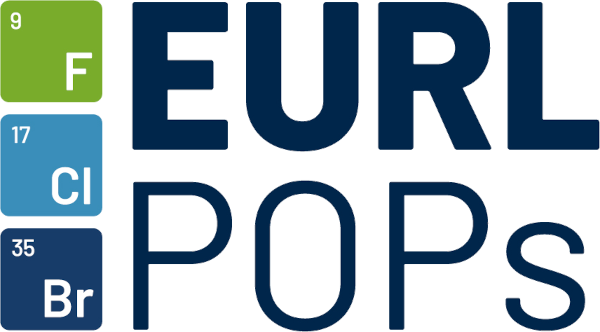
Organisation Type: Non-academic / Industrial partner
State Institute for Chemical and Veterinary Analysis Freiburg (CVUA Freiburg): Responsible for official control of feed and feed samples in the German state of Baden-Württemberg.
EU Reference Laboratory (EURL) for halogenated POPs in Feed and Food: The overall objective of the EURL in close cooperation with the network of the National Reference Laboratories of EU member states (NRLs) and the European Commission is to improve the quality, accuracy and comparability of the results at the official control laboratories (Regulation (EC) No. 2017/625 of the European Parliament and of the Council.
Find out more about CVUA Freiburg at: www.cvua-freiburg.de
Find out more about EURL at: www.eurl-pops.eu
Alexander Schächtele
Director of EURL for halogenated POPs in Feed and Food, senior scientist, expertise in analysis of halogenated POPs in feed and food.
Kerstin Krätschmer
Kerstin Krätschmer is a food chemist and is working as scientist at the EURL for halogenated POPs. She has expertise in halogenated POPs with special focus on chlorinated paraffins.
Theresa Zwickel
Theresa Zwickel is a food chemist and is working as scientist at the EURL for halogenated POPs. She has expertise in halogenated POPs.
Christina Riemenschneider
Christina Riemenschneider is a food chemist and is working as scientist at the EURL for halogenated POPs. She has expertise in halogenated POPs with special focus on PFAS.

Organisation Type: Non-academic / Industrial partner
The Marine Institute (MARINE) is the state agency responsible for marine research, technology development and innovation in Ireland. MARINE provides scientific and technical advice to Government to help inform policy and to support the sustainable development of Ireland’s marine resource. The Chemistry department undertakes national environmental and food safety monitoring to comply with EC legislation (Water Framework and Marine Strategy Directives and Food Safety legislation) and OSPAR Convention on behalf of multiple government departments and agencies. The Section also has an active marine chemistry and pollution research programme with PhD and Post-Doctoral researchers.
Find out more about MARINE at: www.marine.ie
Evin McGovern
Evin McGovern is a Senior Chemist and Head of Marine Chemistry at MARINE. He has long standing experience in pollutant monitoring and also broad research experience into fate and impacts and monitoring techniques (e.g. passive sampling) for legacy contaminants and those of emerging concern. He is a long standing participant in various ICES, OSPAR and EC Expert groups related to contaminants and the MARINE is a member of the NORMAN network.
Brendan McHugh
Brendan McHugh is a Team Leader at MARINE. He has long standing experience in pollutant monitoring and also broad research experience into fate and impacts and monitoring techniques (e.g. passive sampling) for legacy contaminants and those of emerging concern. He is a long standing participant in various ICES, OSPAR and EC Expert groups related to contaminants and the MARINE is a member of the NORMAN network.
BRUKER Daltonik GmbH
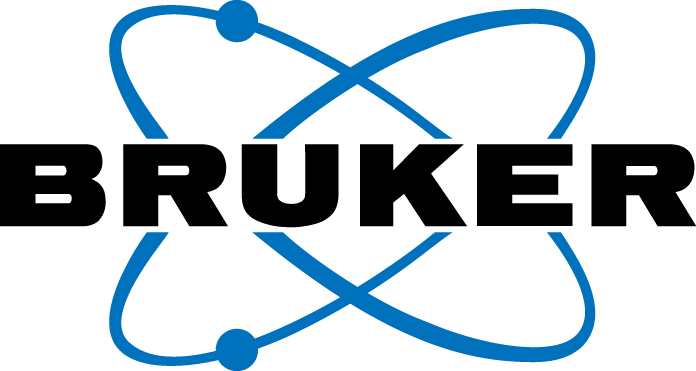
Organisation Type: Non-academic / Industrial partner
BRUKER is a global manufacturer of high-end analytical instruments used within the academic & government, pharma/biotech, clinical diagnostic, and industrial markets. Bruker’s high-performance scientific instruments, accessories and high-value analytical and diagnostic solutions enable scientists to explore life and materials at molecular, cellular and microscopic levels. In close cooperation with customers, Bruker is enabling innovation, productivity and customer success in life science molecular research, in applied and pharma applications, and in microscopy, nano-analysis and industrial applications, improving the quality of human life. In recent years, Bruker has also become a provider of high-performance systems for cell biology, preclinical imaging, clinical phenomics and proteomics research, clinical microbiology, and for molecular pathology research.
Find out more about BRUKER at: www.bruker.com
Carsten Baessmann
Carsten Baessmann is Director of Applications Development at BRUKER. He is responsible for the development of new mass spectrometry-based solutions in the applied markets and has excellent expertise in analytical methods development. His responsibility includes the management of collaborations with leading researchers in the fields of forensics and clinical research as well as food and environmental analysis. He is also in charge of driving the necessary hardware and software development. Dr. Baessmann received his PhD in physical chemistry from the Technical University Munich, Germany. Since over 20 years he served Bruker in various management positions in R&D and applications development.
Micromass UK Ltd (Waters Corporation)

Organisation Type: Non-academic / Industrial partner
Micromass UK Ltd (legal entity for Waters Corporation in the UK) is a leading global supplier of high-performance analytical instrumentation – specifically liquid chromatography, mass spectrometry, thermal analysis and rheology instrumentation – with an excellent track record of providing specialty measurement capability for food and environmental markets.
Find out more about Waters at: www.waters.com
Peter Hancock
Peter Hancock is Director of Food and Environmental Scientific Operations at Waters. Peter Hancock obtained his PhD in analytical chemistry at Salford University, UK in 1997. He leads a global, multidisciplinary team of managers and scientists supporting systems development and the growth of Waters business in markets such as food contaminants, food & research, environmental contaminants, petroleum and alternative feedstocks, fine and specialty chemicals, polymers, intermediates and end products. The team is actively involved in developing, supporting and training on integrated sample preparation, chromatography, mass spectrometry and informatics solutions that help to solve a range of food and environmental analytical challenges and advance scientific understanding.
Doctorates
Yiran Ji
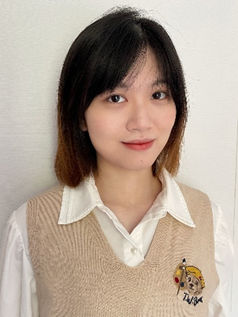 I studied Environmental engineering at the South China University of Technology (SCUT). I then moved to Edinburgh to study Environmental and sustainable chemistry at the University of Edinburgh, and completed my Master’s project under the supervision of Prof Jason Love on gold recovery from electronic waste. During this time, I did an internship at the South China Institute of Environmental Science in chlorinated pollutants’ degradation. I then returned to Guangzhou to work as a researcher for two years with Prof Libo Li for Computational chemistry at SCUT. In October 2021 I will enter the VU Amsterdam for a PhD. My PhD research project will focus on the synthesis and certification of analytical standards of high purity to enable a reliable analysis of CPs and study the biotransformation, and is funded by Marie Curie-ITN-EID. Outside the lab I enjoy swimming, playing badminton and travelling.
I studied Environmental engineering at the South China University of Technology (SCUT). I then moved to Edinburgh to study Environmental and sustainable chemistry at the University of Edinburgh, and completed my Master’s project under the supervision of Prof Jason Love on gold recovery from electronic waste. During this time, I did an internship at the South China Institute of Environmental Science in chlorinated pollutants’ degradation. I then returned to Guangzhou to work as a researcher for two years with Prof Libo Li for Computational chemistry at SCUT. In October 2021 I will enter the VU Amsterdam for a PhD. My PhD research project will focus on the synthesis and certification of analytical standards of high purity to enable a reliable analysis of CPs and study the biotransformation, and is funded by Marie Curie-ITN-EID. Outside the lab I enjoy swimming, playing badminton and travelling.
Ana R. L. Araújo
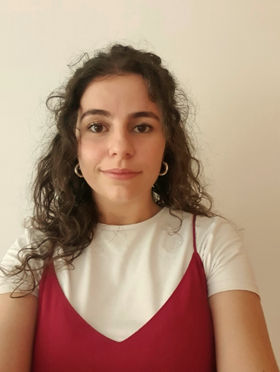 Ana R. L. Araújo, born and raised in Portugal, received her B.Sc in Chemistry (2016) and M.Sc in Medicinal Chemistry (2019) from University of Minho. Her master’s thesis was carried out at University of Minho and Pharmacognosy Laboratory of the Faculty of Pharmacy, University of Porto, entitled “Plant extracts: isolation, characterization, nanoencapsulation in lipids, cytotoxicity in AGS cells and synthesis of analogues”. In the last two years she was in a research fellow of the following project “Signaling Gasotransmitters Light Up” in University of Aveiro which consisted in the synthesis of macrocycles as new gasotransmitters chemosensors. From her research career, she has published 3 papers in scientific journals and 5 poster communications. Her scientific interests are in the field of organic molecules synthesis.
Ana R. L. Araújo, born and raised in Portugal, received her B.Sc in Chemistry (2016) and M.Sc in Medicinal Chemistry (2019) from University of Minho. Her master’s thesis was carried out at University of Minho and Pharmacognosy Laboratory of the Faculty of Pharmacy, University of Porto, entitled “Plant extracts: isolation, characterization, nanoencapsulation in lipids, cytotoxicity in AGS cells and synthesis of analogues”. In the last two years she was in a research fellow of the following project “Signaling Gasotransmitters Light Up” in University of Aveiro which consisted in the synthesis of macrocycles as new gasotransmitters chemosensors. From her research career, she has published 3 papers in scientific journals and 5 poster communications. Her scientific interests are in the field of organic molecules synthesis.
David Liwara
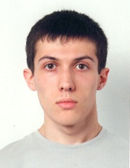 I am David Liwara and I am from France. I grew up and lived in the southwest of France near the Spanish border. After three years in preparatory classes to prepare a national competitive exam in mathematics, physics and chemistry to enter engineering schools, I studied two years in Marseille, in the engineering school Ecole Centrale de Marseille. I wanted to focus on one scientific field so since I liked more chemistry, I decided to do a master. Thus, I moved to Trondheim in Norway as a double degree student to get a master’s in chemistry specialized in organic chemistry from the Norwegian University of Science and Technology (NTNU). There my master’s thesis was about the synthesis of two natural molecules. Also, during my school career, I was able to do several internships, including one in a laboratory, where I was able to work on hemicryptophane cages. It was a really good experience, so I decided to stay in the academic world to start a PhD in chemistry. Now I am doing a PhD about the synthesis and the analysis of PFAS compounds, and it will take place between the laboratory Chiron and the Vrije Universiteit Amsterdam. In my free time, I like hiking, running and cooking especially baking.
I am David Liwara and I am from France. I grew up and lived in the southwest of France near the Spanish border. After three years in preparatory classes to prepare a national competitive exam in mathematics, physics and chemistry to enter engineering schools, I studied two years in Marseille, in the engineering school Ecole Centrale de Marseille. I wanted to focus on one scientific field so since I liked more chemistry, I decided to do a master. Thus, I moved to Trondheim in Norway as a double degree student to get a master’s in chemistry specialized in organic chemistry from the Norwegian University of Science and Technology (NTNU). There my master’s thesis was about the synthesis of two natural molecules. Also, during my school career, I was able to do several internships, including one in a laboratory, where I was able to work on hemicryptophane cages. It was a really good experience, so I decided to stay in the academic world to start a PhD in chemistry. Now I am doing a PhD about the synthesis and the analysis of PFAS compounds, and it will take place between the laboratory Chiron and the Vrije Universiteit Amsterdam. In my free time, I like hiking, running and cooking especially baking.
Jonatan Nygren
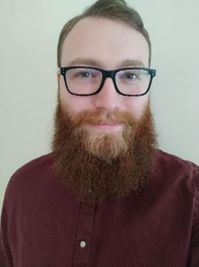 I am a former Swedish student from Linköping University (LiU) where I have done both my bachelor in analytical chemistry engineering and my master in organic synthesis. I would describe myself as a positive and outgoing person with many different interests. During my time in Linköping I have been heavily active in many sorts of student associations so I would say I like having a lot going on. I have been working both with monitoring of education and I have also held a few positions working for the study social environment of LiU’s students. One of the student associations I have been a part of is Villevalla Pub where we specialize in craft beer, among else I have been working as a beer taster (holding beer tastings for both guests and personnel) so I would definitely say that craft beer is a big hobby of mine. Whenever I am not working voluntarily, I like to play video games, board games and roleplaying as well as playing disc golf.
I am a former Swedish student from Linköping University (LiU) where I have done both my bachelor in analytical chemistry engineering and my master in organic synthesis. I would describe myself as a positive and outgoing person with many different interests. During my time in Linköping I have been heavily active in many sorts of student associations so I would say I like having a lot going on. I have been working both with monitoring of education and I have also held a few positions working for the study social environment of LiU’s students. One of the student associations I have been a part of is Villevalla Pub where we specialize in craft beer, among else I have been working as a beer taster (holding beer tastings for both guests and personnel) so I would definitely say that craft beer is a big hobby of mine. Whenever I am not working voluntarily, I like to play video games, board games and roleplaying as well as playing disc golf.
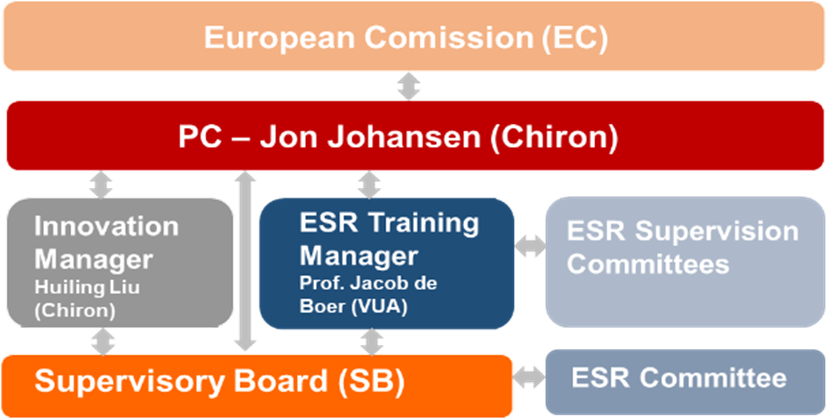
REVAMP consortium management structure
Marie Skłodowska-Curie actions ITN,
REVAMP: Reference materials and validated methods for emerging pollutants
Contact us

+47.73874490 | sales@chiron.no | www.chiron.no/en
Privacy Policy | company registration n.: 8859846
Revamp project Privacy Policy
Chiron AS and all its subsidiary companies
-
1. Subject of Privacy Policy Statement
Chiron AS takes the protection of your personal data very seriously. We want you to know when and what data we collect, and how we use it.
-
2. Competent authority/service provider
The competent authority within the terms of the GDPR and The Norwegian Data Protection Authority. If you have questions or remarks concerning this Privacy Policy Statement or general questions or remarks concerning data security, please direct them to the following email address: chiron@chiron.no
-
3. Collection and use of your data when you visit our website
When you visit our website for informational purposes you are generally not required to give any personal details. No data is therefore stored.
-
4. Collection of data for the use of services (e.g. ordering etc.)
If you wish to use services provided us (ordering merchandise etc.), we require that you give additional data. The data in question is required so we can handle and invoice your order (e.g. purchase order) properly. This includes your name, company name, company address, email address, and your specific purchase order or concern.
We collect or use your data for the purpose of carrying out your order. We treat the personal data you have entered confidentially and in compliance with the applicable data privacy regulations. We only collect, process or use personal data when this is necessary for establishing or handling the contractual relationship.
To serve the given purpose, your data may, where necessary, be transferred to our partner service providers, whom we have of course carefully selected. These may be service providers whom we use for shipping and/or credit unions.
Otherwise, we will only transfer your data to other third parties if we are required to do so by law.
You may at any time demand information on your data personal data stored by us. In addition, you may at any time demand that any information regarding your personal data be deleted, provided that the contractual relationship is fully transacted, and the storage of the data is not mandatory.
-
5. Purpose for collection data
Chiron's legal basis for processing your Personal Information
Our legal grounds for processing your Personal Data for the purposes described above will typically be one of the following:- Your consent;
- Performance of a contract with you;
- Our legitimate business interests; or
- Compliance with a legal obligations.
-
6. Use of Cookies and Tracking Technologies
Chiron AS does not use cookies or any form of tracking technologies on its website.
-
7. Third-party
Our website includes links to other websites, when entering these websites, you are leaving Chiron’s website. These websites may have privacy practices that are different from Chiron’s. Any use on these websites are governed by their privacy policies. We encourage you to carefully read the privacy policy on any website you visit.
-
8. Right of objection and revocation
Visitors to this website may at any time opt out of the collection and storage of data which we use to tailor our website to their requirements and to create user profiles for advertising and market research purposes with future effect. Please send to chiron@chiron.no
We would like to point out that you can revoke the data protection consent granted to us at any time with future effect. Please send to chiron@chiron.no

